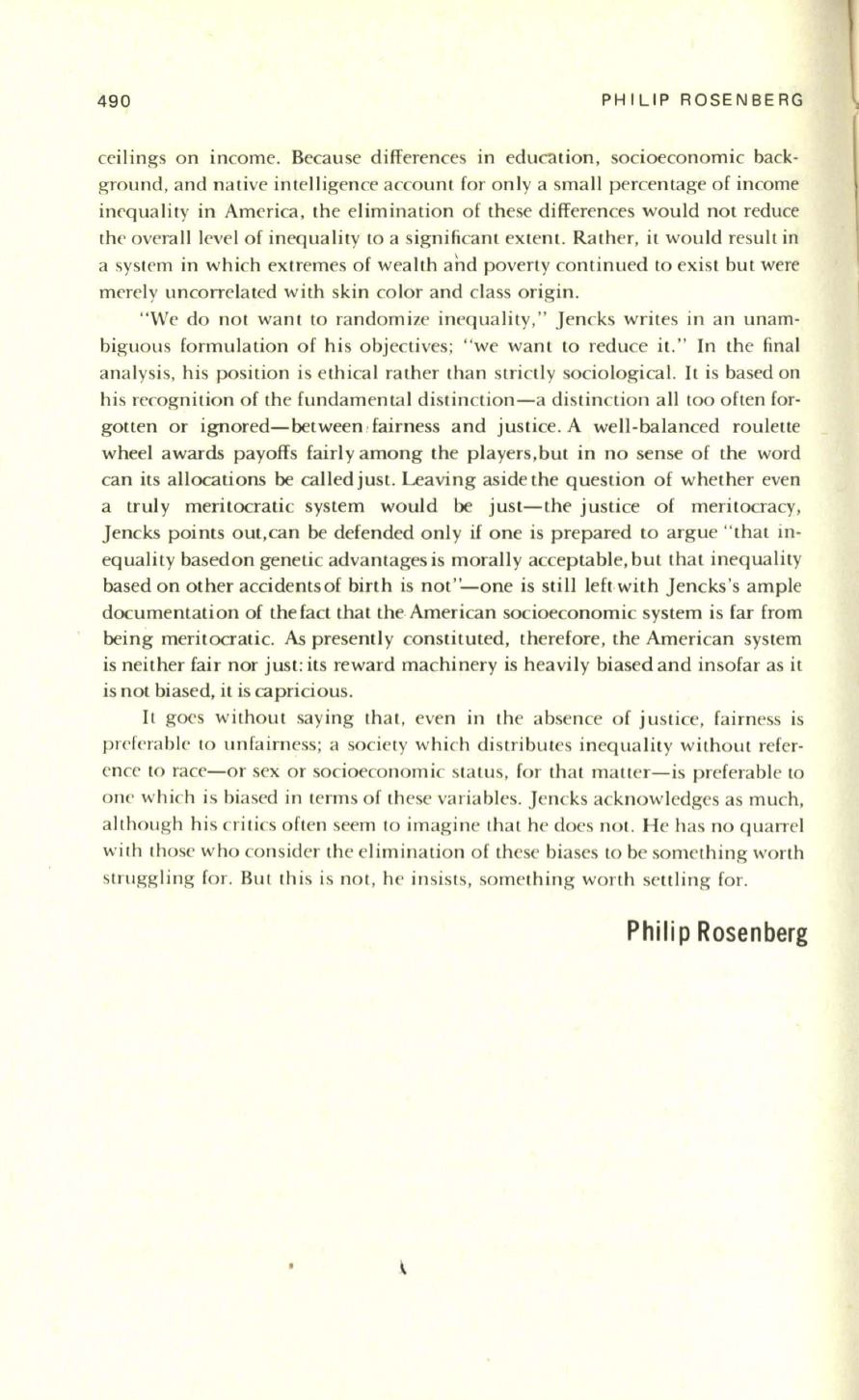
490
PHILIP ROSENBERG
ceilings on income. Because differences in education, socioeconomic back–
ground, and native imelligence account for only a sma ll percentage of income
inequality in America, the elimination of these differences would not reduce
the overall level of inequality to a significam extent. Rather, it would result in
a system in which extremes of wealth and poverty continued to exist but were
merely uncorrelated with skin color and class origin.
"We do not want to randomize inequality," Jencks writes in an unam–
biguous formulation of his objectives; "we wam to reduce it." In the final
analysis, his position is ethical rather than strictly sociological.
It
is based on
his recognition of the fundamental distinction-a distinction all too often for–
gotten or ignored-between :fairness and justice. A well-balanced roulette
wheel awards payoffs fairly among the players,but in no sense of the word
can its allocations be called just. Leaving aside the question of whether even
a truly meritocratic system would
be
just-the justice of meritocracy,
Jencks points out, can be defended only if one is prepared
to
argue "that in–
equality basedon genetic advamages is morally acceptable, but that inequality
based on other accidents of birth is not"-one is sti ll left·with Jencks's ample
documentation of the fact that the·American socioeconomic system is far from
being meritocratic.
As
presently constituted, therefore, the American system
is neither fair nor just: its reward machinery is heavily biased and insofar as it
is not biased, it is capricious.
It
goes without saying that, even in the absence of justice, fairness is
preferable to unfairness; a society which distributes inequality without refer–
ence to race-or sex or socioeconomic status, for that maller-is preferable to
one which is biased in terms of these variables. Jencks acknowledges as much,
although his critics often seem to imagine that he does not. He ha no quarrel
with those who consider the elimination of these biases to be something worth
struggling for. But this is not, he insists, something worth settling for.
Philip Rosenberg


